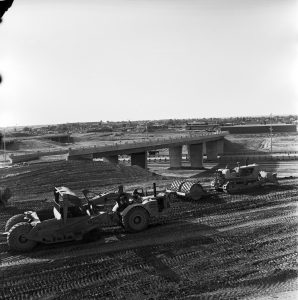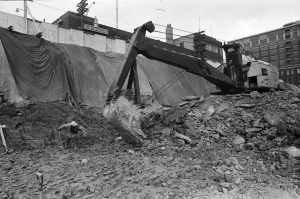Dr. Gilberto Fernandes is a Visiting Professor in the Department of History and the Global Labour Research Centre where he leads the project Laborem Ex Machina: The History of Operating Engineers and Heavy Machinery in Canada's Construction Industry. His research on the history of Portuguese diaspora has been published in multiple journals and in his book This Pilgrim Nation: the Making of the Portuguese Diaspora in Postwar North America (2019). Dr. Fernandes' academic research and public history practice are closely connected and have resulted from various collaborations with community partners, leading to the building of a community archive, documentary films and oral history videos, multiple digital history contents, travelling exhibitions, lectures series, walking tours, among other activities. Dr. Fernandes' public history initiatives include the Portuguese Canadian History Project, which he co-founded and has led since 2008, and the multidimensional project City Builders: a History of Immigrant Construction Workers in Postwar Toronto, winner of the 2019 Lieutenant-Governor of Ontario Award for Excellence in Conservation.
More information on his current project can be found below:

PROJECT DESCRIPTION
The Laborem Ex Machina: The History of Operating Engineers and Heavy Machinery in Canada's Construction Industry is a research and public history project led by Dr. Gilberto Fernandes and funded by the International Union of Operating Engineers (IUOE) Local 793. The objectives of this three-year project (2020-2022) are to preserve, learn and share the history of one of the most important trades in Canada's construction industry.
RESEARCH TOPICS
This project focuses on the working experiences of operating engineers, their labour organization and activism, occupational health and safety, apprenticeship programs and other skills training, inter-ethnic relations, and related topics. It will examine the impact of technological innovations on and the use of often-dangerous heavy machinery in the workplace by a group of workers that have operated them for over a century in all sectors of the construction industry. The lessons from this history will be of interest to anyone considering the impact of artificial intelligence, robotics, 3D printing and other future technological advancements in the workplace and how they might affect workers and their unions. The construction industry has been a major partner in Canada's colonialist nation-building project and a contributor to massive natural devastation and environmental degradation. Operating engineers have been on the frontlines of these processes and interactions, both in large civil projects in the Canadian hinterland and in residential, commercial, institutional, and industrial construction projects in the cities. Our project will examine the role of operating engineers and their unions in settler-Indigenous relations and in contributing to or fighting climate change in the past.
DELIVERABLES
This project has three large objectives - preserve, learn, share - each with their deliverables:
PRESERVE (archiving): we will 1) offer professional advice to IUOE Local 793 on how to best store and manage their historical records; 2) facilitate the transfer of a large portion of its historical records to the care of the Clara Thomas Archives and Special Collections, York University Libraries, where they will be preserved and made accessible to researchers, teachers, and students; and 3) digitize a portion of these records and make them available through York University's digital repository and our project's digital history website.
LEARN (research): we will examine the records of the IUOE Local 793 and other collections in various public archives, and conduct oral history interviews with active and retired operating engineers, labour organizers, contractors, and other individuals. This research will result in peer-reviewed journal articles, policy briefs, and a book.
SHARE (public engagement): we will step outside the halls of academia and share our findings with the general public. We will do so by 1) creating a public digital history website where we will share our research findings, digitized records, photos, infographics, short documentary videos, and a podcast series; and 2) facilitating the installation of one Heritage Toronto commemorative plaque on the site of the old Elliot House Hotel, where the IUOE Local 793 was founded in 1919.
PROJECT TITLE
The title Laborem Ex Machina (labour from the machine) is a play on the Latin expression deus ex machina (God from the machine), which refers to a plot device used in ancient Greek theatre whereby an actor playing God would ascend or descend onto the stage by way of a machine - usually a crane or a trapdoor - and resolve a seemingly unsolvable problem in the story and bring it to a happy ending. Our title alludes to the labour of operating engineers and their heavy machinery, which made possible large-scale construction projects that would have been unfeasible without them.

